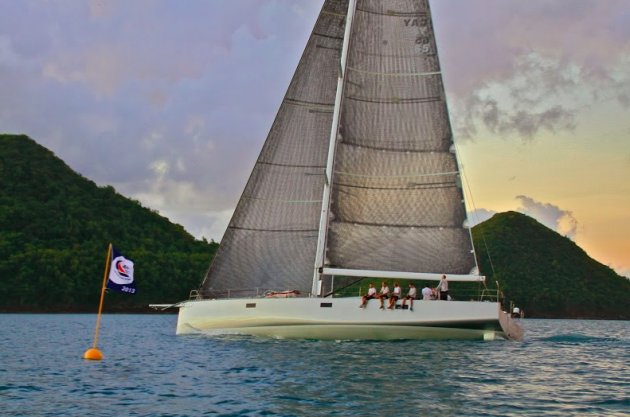This year's ARC has set a batch of new records in very unusual weather
It has been an extraordinary, record-breaking ARC transatlantic rally this year, and in more ways than one. First, it sets a new high water mark as the largest transocean sailing event, with some 268 yachts and more than 1,400 crew sailing from Gran Canaria to Saint Lucia either directly or via the Cape Verde islands in the parallel ARC+ rally.
Secondly, a new course record of 10 days 21 hours was decisively stamped out by Max Klink’s gorgeous new Botin 65, Caro (pictured above). It’s the fastest crossing in the event’s 27-year history.
But that’s not the extraordinary part. What’s odd is it is both the quickest ARC and probably also the slowest. As the tradewinds deserted the course, a majority of crews have wallowed through light winds and one or two will be pushing hard to get here by Christmas.
As of today only the first dozen ARC yachts have finished, and there is a 5-day spread between those. I’ve never seen that before. The average crossing time is going to be 19-20 days. That’s slooow.
This highly unusual ARC has also recorded two other telling firsts. It has seen what is almost certainly the longest distance ever sailed on the event, a marathon 3,494 miles logged by the crew of Baltic 78 Laetitia as they hauled over the top of a low pressure system (the rhumb line distance is 2,660 miles).
There has also been biggest ever stretch from north to south as an area of high pressure displaced the tradewinds southwards and among the rush to the south some crews elected to dip below even the latitude of Saint Lucia (see the grab of routes taken, below). The spread between the furthest north and the furthest south was – incredibly – almost 1,300 miles!
I make that a good three clothing layer difference and a 20-point SPF factor variation (both are all-important metrics in my book).

A moral to this story lies behind the statistics. It is simply that you cannot depend on the tradewinds, and that there is really no ‘typical’ year. This ARC is exceptional, yes, but I find conditions vary considerably year on year anyway, and the experiences are often quite different from front to back of the fleet and from north to south.
Crews who went north have arrived with tales of cold weather, high winds, torrential rain and grey skies, the latter nearly all the way across, while to the south people reported light winds and long periods of being almost becalmed.
“You can no longer predict what your Atlantic crossing will be like,” comments Andrew Bishop, managing director of World Cruising Club.




